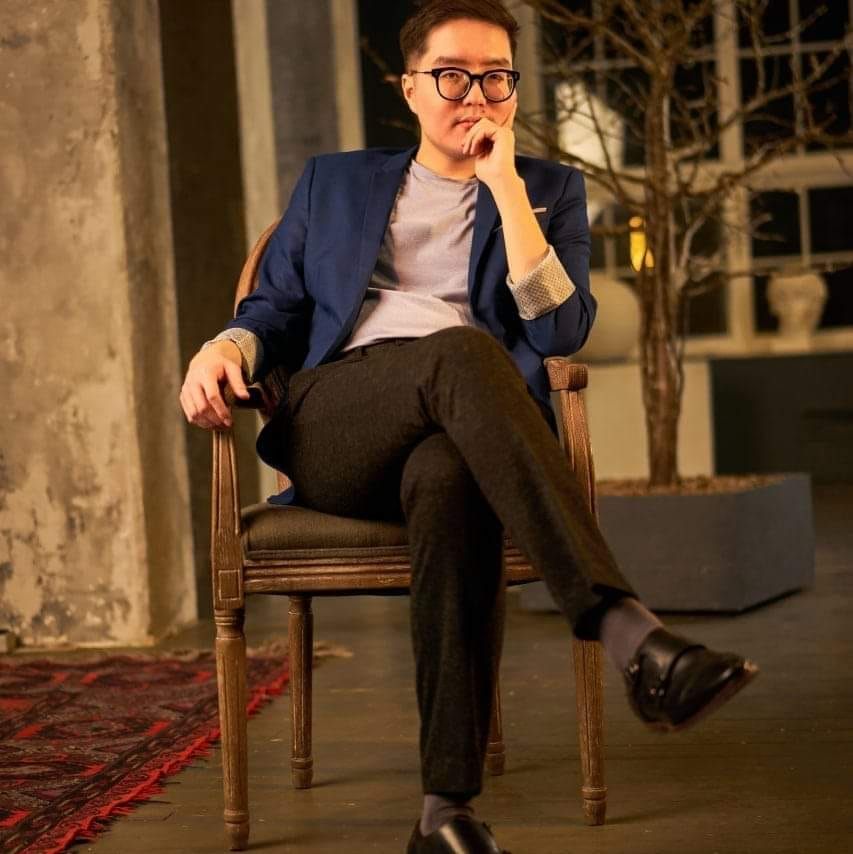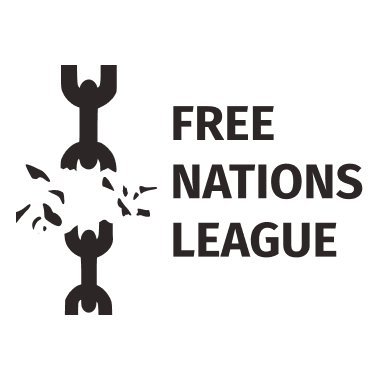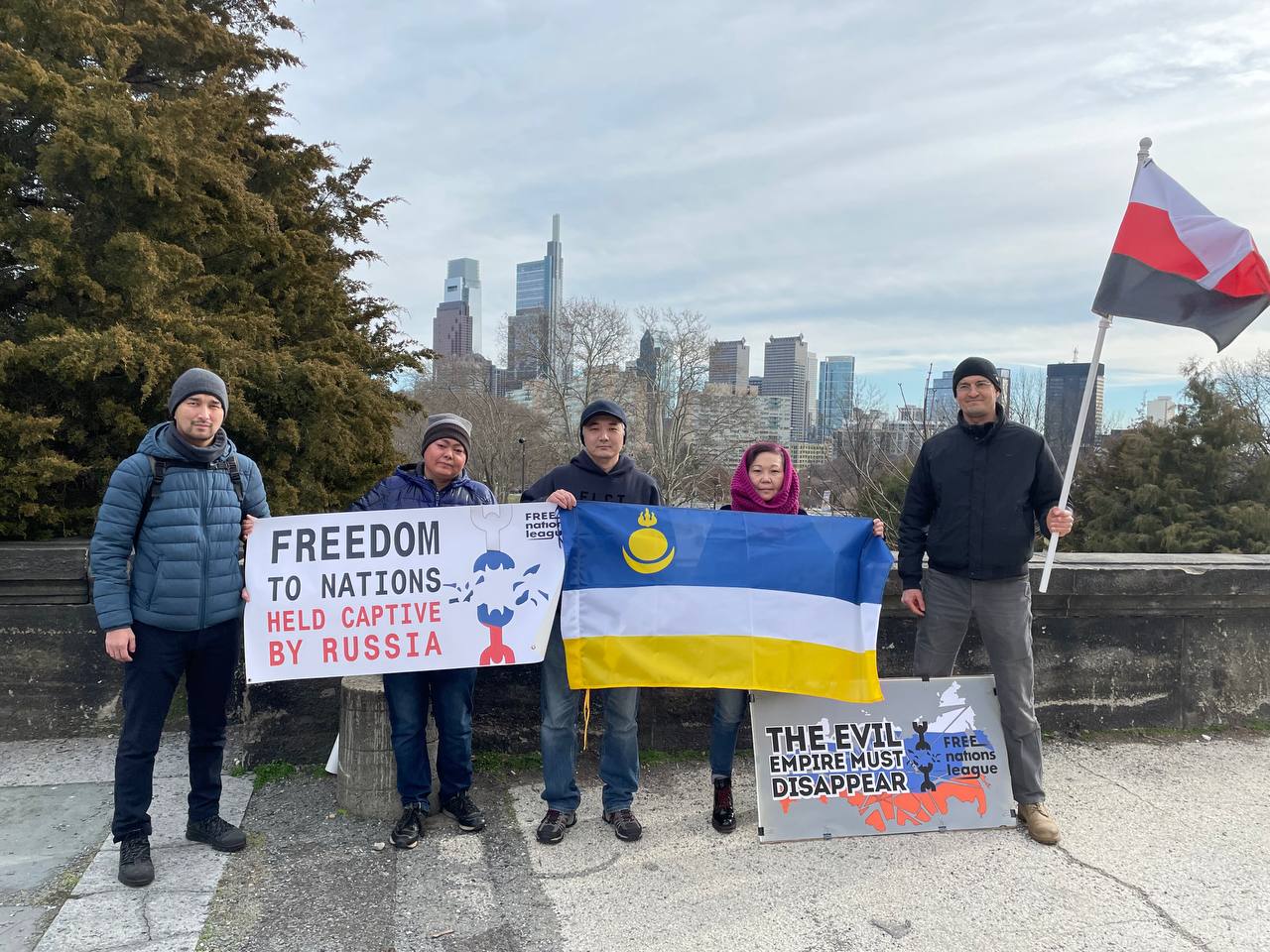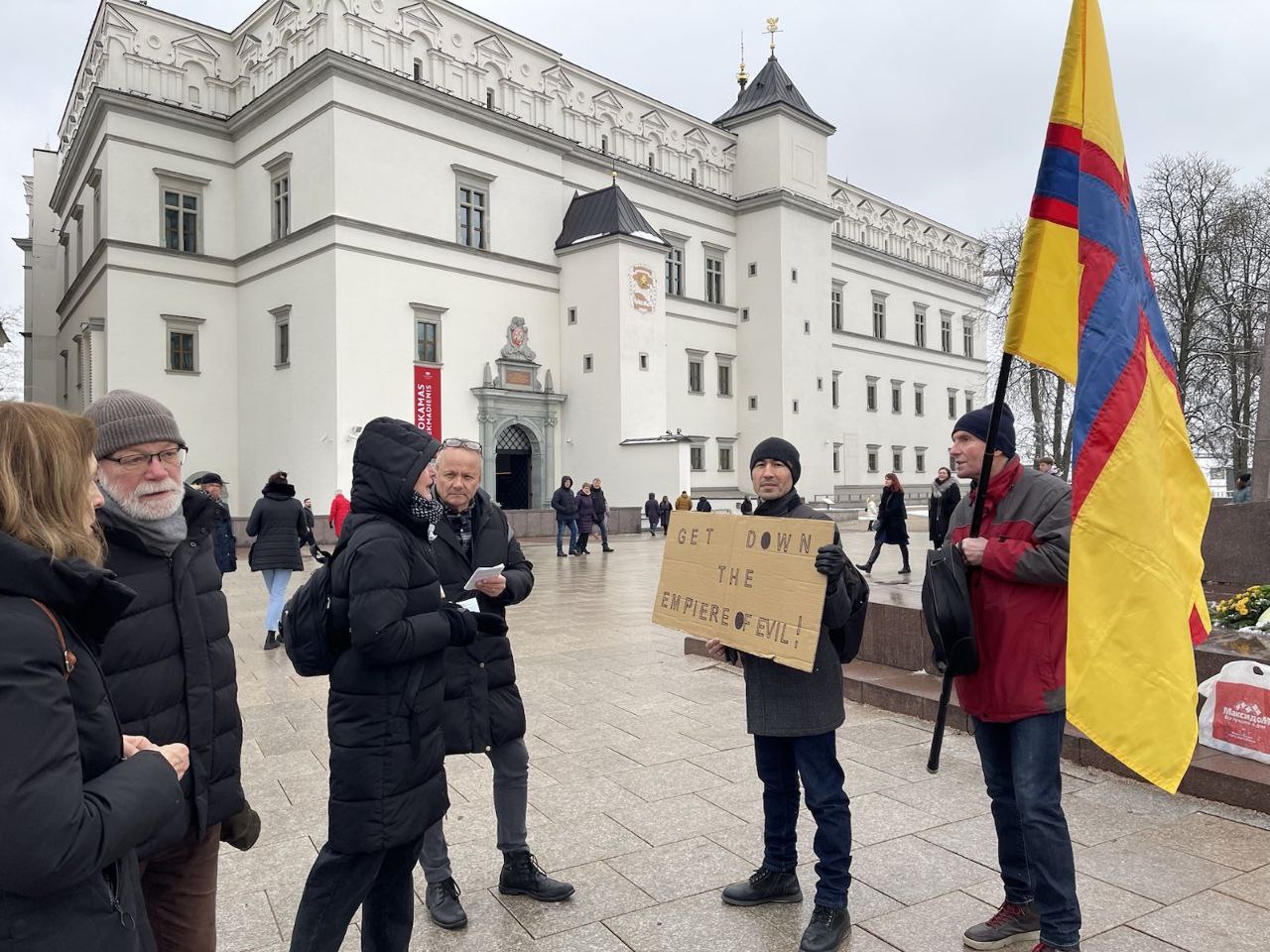Updated 2/9/2023
Davur Dordzhiev: I'd rather be "with the outcasts and rebels"
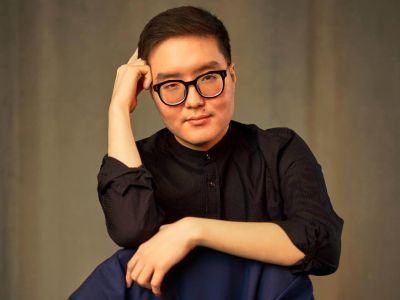
Hello Dear Readers!
Dear readers, my name is Davur, and I am an Oirat. On behalf of the Congress of the Oirat-Kalmyk people, I spoke at the conference on Imperial Russia, organized by the "European Conservatives and Reformers" faction in the European Parliament in association with the Forum of Free Peoples of Post-Russia. On the sidelines were journalists from the ‘glad handing’ media of the “all-Russian agenda”, who, with gloomy faces, were observed scribbling furiously on their laptops. Last Friday, almost simultaneously, several materials were published about the conference (in Novaya Gazeta Europe, Meduza, TV Rain (Dozhd’), and so on), the general tone of which was reduced to disparaging the speakers and the agenda of Russia's disintegration. In several of them, dubious phrases were used, for example, the Bashkort Ruslan Gabbasov was called "an elderly balding man with glasses" in a report by Ilya Azar, who is, likewise, an elderly balding man with glasses. The most sincere member of the Navalny Team, Vladimir Milov, who does not mislead the audience and says everything that is spinning in his head (which are not the most complimentary nor humane thoughts), published a long segment in which he states that Russia cannot fall apart. For me, this manner of coverage of ‘The Imperial Russia’ forum and the entire discourse of criticism aimed at the regionalist movement testify to several fundamental theses that guide the so-called "Good Russians".
Thesis number 1. They do believe in Russia "from Kaliningrad to Vladivostok".
The Soviet anthem stated that the peoples, subjugated by the Tsars, Bolsheviks and Communists “have welded forever to stand" by Great Russia. Politicians and public figures of the “all-Russian agenda” (for brevity, we use the term “all-Russians”) consider the entire space of the Russian Federation to be ethnically homogeneous (“Russians live everywhere”), an economically whole territory and which is not subject to disintegration. In their perception, Russia is a single entity, and the people living in Bryansk, Petrozavodsk, Elista and Kyzyl are all one people. How this differs from the concept of late Putinism regarding Ukraine and Belarus is not clear. In addition, the Good Russians of Moscow and St. Petersburg are sure that only they, with their wisdom and inflexibility, as well as their readiness to use repression, save us, non-Russians, or else omnium contra omnes (all against all). Since they declare we are incapable of making amends or of constituting our own states, I can declare this line of thought political primordialism.
Thesis number 2. They stigmatize us because they can't find a way to debate our agenda.
The rhetoric of the materials mentioned above is aggressive, targets personality and looks, and is not about arguing with the agenda. It should be noted that not all activists and national movements have adopted the idea of secession from Russia. For example, a representative of the Itelmens who was present at the forum called for protecting the indigenous way of life of his people, which is being encroached upon by the brazen business practices of the Moscow metropole and which violates all possible environmental standards. Nevertheless, all-Russians are trying to erase our differences and create an image of us that is depersonalized and, subsequently, convenient for stigmatization and obstruction; how this differs from the propaganda cliché of "Russophobe" or "Russian-cutter" is again not clear. The only funny thing is that there is, in fact, no answer regarding the national question on the agenda of the all-Russians themselves (Navalny Team, Mikhail Khodorkovsky etc.). Everything should be decided by "parliamentary rule". True, so far no one has given an answer as to how to ensure that the rights of the same Itelmens are respected in the all-Russian parliament. I can assume that the right of veto for them in the format of the European Council, where France and Germany are forced to conduct extensive negotiations with Poland, Lithuania and other states, is out of the question for all-Russians.
Thesis number 3. They dream of returning to February 23, 2022.
No matter how you slice it, it's true. I thought about this during my conversation with Akhmed Zakayev, the leader of Ichkeria. The terrible magic of numbers that is, given February 23 is also the date of the Genocide of the Chechens and Ingush. In a good way, in the Russian discourse of late Putinism, the all-Russians were satisfied with many things. Siberia and the Far East were under effective Moscow control, the Chechen fighters for freedom were either killed or expelled, and “liberal bureaucrats”still remained in the Putin system. At that time, they were seen as a plausible starting point for the much talked about “rift between elites”. The President of Russia was praised for the efficient reforms of the first years of his reign (taxation, land use regulation), and respected for the fight against "separatism". Allegedly, in the eyes of all-Russians it is enough to dismiss Putin, carry out several detentions and seizures of assets, and start to build the Great and Free Russia. Moreover, in all honesty, not every one of those who are considered to be Russian liberal democrats firmly and correctly answers the question "who owns Crimea?". There will definitely be preconditions like "well, people did vote there" or "if we give it away, it will cause resentment among the Russians." But on February 23, 2022, one could calmly perceive the temporarily occupied territories as Russian, one could talk about "another referendum" and even "the impossibility of returning it back to Ukraine." In other words, the all-Russians have no understanding that the past will no longer exist. The Russian project was given many chances both by European and US governments. I remember the time when "from Lisbon to Vladivostok", Pan-European projects arose. Russia received all-around support for their economy, visa-free travel and other things of global economic integration were widely discussed. The most terrible thing for all-Russians, perhaps, is that they cannot prove their right to have one more chance to modernize, democratize and preserve Russia as a geopolitical reality. The most daring all-Russians are accusing the "collective West" that it is they who are to blame for the rise of Putinism. How this differs from Russian state propaganda and its accusations about the "collective West" is, again, not clear.
So the best tactic for all of us, I think, is to reasonably ignore their insults. We should focus on the following: (1) make our own agenda more appropriate to new realities; (2) establish ties with foreign nations and develop our own political representation on an international level; and, finally, (3) create an image of the future for our peoples and nations. After all, in 1984, hardly anyone in the Soviet republics perceived liberation movements and their leaders as anything other than outcasts and rebels. They were either killed or locked behind bars in KGB camps. And then these men and women, being in the minority, defeated Russian Soviet imperialism. If disintegration of Russia is "beneficial to Putin and the Kremlin," as the Good Russians say, then I'd rather be "with the outcasts and rebels", who strive for liberty for their nations.
Davur Dordzhiev, Member of the Congress of the Oirat-Kalmyk People
